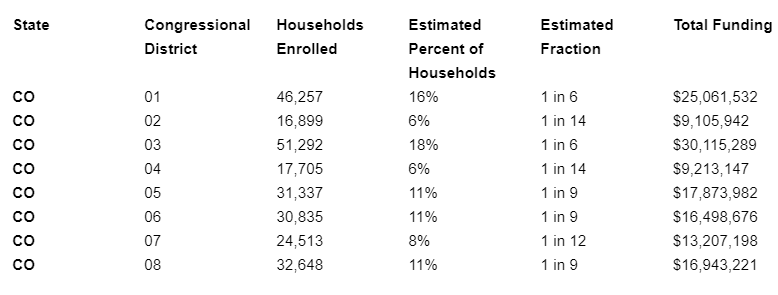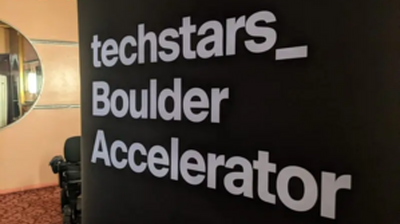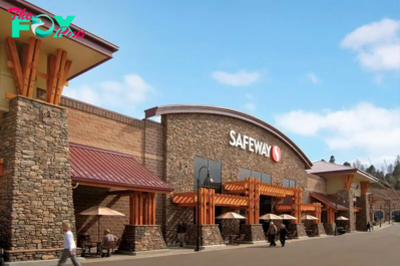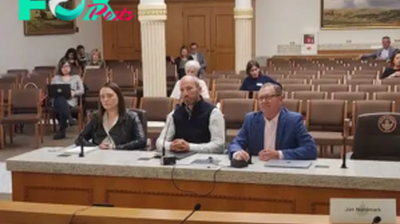Technology
Colorado working on alternatives to discount internet program, now ending in May
An extra $30 a month may not mean much to most people, but to Kathryn Beerline, a Lakewood resident, the monthly federal subsidy that has paid for her internet service has helped her save money to buy a 15-year-old used car for herself so she could give her even older vehicle to her son.
The subsidy ends in May when funding for the Affordable Connectivity Program is expected to run out. While supporters, including the White House, are scrambling to get Congress to extend the program, internet providers and ACP customers have to find alternatives. Beerline said she switched this week to Comcast’s least expensive service, at $9.99 a month for 50 Mbps down, which is half the speed she’d received under ACP but one-third the price, which she’ll now pay. She’s grateful for the extra assistance.
“ACP has been paying my $29.99 bill every month and it has been a tremendous boost as I am a single mom,” Beerline said in an email when she first learned that ACP was ending in February. The $30 means a lot to someone like herself “who chooses not to ever eat out, get a Starbucks and only treat myself and my son to seeing a movie at a theater maybe two to three times/year so I can put the only extra (money) left after paying bills into savings.”
Beerline is one of the estimated 251,506 Colorado households enrolled in the program. That’s 1 in 9 households in the state and 23 million households nationwide, according to the Federal Communications Commission. While a proposal in Congress has gained momentum to use $7 billion to extend ACP funding through the end of the year, the bipartisan bill doesn’t have enough support yet.
“Nearly half of the households that are in ACP are military families. About a quarter of them are seniors. And because of the programs, so many of those folks are able to pay a small reasonable, affordable price for internet and for people who are low income, a lot of them are able to access it for free. That’s a big deal and it is something that we ought to make sure is maintained,” said Jon Donenberg, a deputy director on President Biden’s National Economic Council.
Colorado searches for alternative
Colorado officials have been scrambling to find an alternative should ACP end. In January, when it awarded $113.5 million to 27 mostly rural projects to build better fiber-based broadband, the Colorado Broadband Office required internet providers to include a low-cost option equivalent to or better than the ACP.
An even larger amount — the previously announced $826.5 million that Colorado is getting from the federal Broadband Equity Access and Deployment program — is set to be doled out later this year. State officials have been working with the National Telecommunications and Information Administration to figure out if they could add a low-income requirement. That finally appears to be moving forward, said Lauren Francis, a spokeswoman for the Colorado Broadband Office.
“After working on several drafts with NTIA, we intend to go with the requirement that providers offer a low-cost broadband service rate not to exceed $50, if the ACP subsidy is no longer offered by the federal government,” she said.
She added that the NTIA hasn’t approved Colorado’s proposal yet. And it is unlikely there will be a state solution by May, when ACP funding runs out.
“The loss of this program will definitely have impact,” Francis said.
ACP grew out of federal COVID-19 relief aid to help low-income households pay for internet service during the pandemic, which decimated school attendance and made remote learning a challenge for students with limited or internet access. Initially, the amount was $50 a month as part of the Emergency Broadband Benefit. ACP replaced EBB in January 2022 and cut the amount to $30 a month. Households on tribal lands received $75 a month.
Both programs were open to residents already eligible for other government-assistance programs, such as Medicaid, food stamps or free and reduced school lunch.
But neither broadband program ever attracted the majority of eligible users. Early on, internet providers criticized the challenges of getting customers enrolled while digital divide advocates said there was no funding for outreach. Those issues were addressed in the ACP rollout, which still had mixed results. Only about one-third of Colorado’s eligible 761,000 households are enrolled in ACP. Some potential customers worried about what happens when the money runs out. But ultimately, more than 250,000 enrolled in Colorado.
In Colorado, ACP enrollees are largely outside the Denver area, which has the second highest number of participants, according to FCC data. The state’s 3rd Congressional District has the highest, with more than 51,292 households enrolled and 18% of the community, according to FCC data.

U.S. Rep. Lauren Boebert, who represents CD3, said she doesn’t support additional spending.
“We are approaching $35 trillion in debt and the federal government ruins nearly everything,” she said. “I don’t think that more federal subsidies towards projects like that are what’s our necessity right now.”
Donenberg, who advises Biden on economic policy, said the president’s hope is that there is a permanent program and this could buy Congress more time to figure out what that could be.
“The president has indicated in his budget for this year that we would like to see a long-term, sustainable funding solution here for maintaining the program, because I think what we learned during the pandemic was that access to affordable and reliable high speed internet wasn’t just a pandemic problem, it is an American problem,” he said. “This is a requirement really for participation in the economy and for effective participation in the society.”
Colorado Sun reporter Sandra Fish contributed to this story.
-

 Technology22h ago
Technology22h agoBreaking up Google? What a Chrome sell-off could mean for the digital world | The Express Tribune
-

 Technology1d ago
Technology1d agoAI harm is often behind the scenes and builds over time – a legal scholar explains how the law can adapt to respond
-

 Technology1d ago
Technology1d agoNewborn planet found orbiting young star, defying planet formation timeline | The Express Tribune
-

 Technology1d ago
Technology1d agoAwkwardness can hit in any social situation – here are a philosopher’s 5 strategies to navigate it with grace
-

 Technology1d ago
Technology1d agoNo need to overload your cranberry sauce with sugar this holiday season − a food scientist explains how to cook with fewer added sweeteners
-

 Technology2d ago
Technology2d agoTeslas are deadliest road vehicles despite safety features: study | The Express Tribune
-

 Technology2d ago
Technology2d agoThere Is a Solution to AI’s Existential Risk Problem
-

 Technology2d ago
Technology2d agoUS pushes to break up Google, calls for Chrome sell-off in major antitrust move | The Express Tribune



























